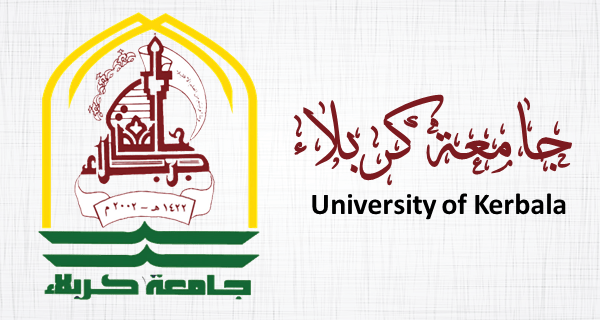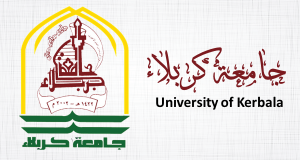Semir khelil Ibrahim Smtoha
Assistant Professor, Faculty of Tourist Sciences, University of Karbala Iraq,
Sustainable development is one of the most important global agendas in the current century, and the world is witnessing an increasing interest in sustainable development issues and procedures, as many economic sectors have sought to achieve growth and development in ways that preserve the environment, society, and the economy alike.
Since the late eighties of the last century, specifically in 1987, the United Nations has focused on the concept of sustainable development, and its economic, social and environmental dimensions. Economic thinking has become not only focused on the industrial economic sector, as it is the main source of wealth for the country, but rather has gone beyond thinking to focus on the activities of the service sector with its various activities as a source that enhances the national income of the country (Ben Moeza, 2018: 372). Among those economic sectors; The tourism sector has emerged as one of the sectors that can benefit greatly from the concepts and practices of sustainable development. As a means of preserving the environment and culture, and achieving sustainable economic development. And achieve the holy province of Karbala; As a major religious destination in the world, it has been a great success in attracting millions of visitors annually. However; This trend is accompanied by challenges, including: the influx of millions of visitors, and its impact on the environment and infrastructure. In this context, this article seeks to explore how to transform sustainable development into a competitive advantage in the tourism sector in the holy province of Karbala.
An overview of sustainable development:
It may come to mind that sustainable development is just an environmental concept, but rather it is more than this definition, as sustainable development includes economic and social dimensions in addition to the environmental dimension. It is also a strategy that aims to meet the needs of current generations without compromising the ability of future generations to meet their needs. In the context of the tourism sector, it means the development of tourism products and services in a way that achieves a balance between achieving economic growth and preserving the environment and local culture.
The concept of sustainable development represents a comprehensive response to the environmental, economic and social challenges that societies face today. In the tourism sector, sustainable practices reflect an interest in preserving the environment and culture and promoting the well-being of the local population. Sustainable development contributes to creating new economic opportunities and improving the quality of life. Henderson and Loro point out that sustainability; A complex word that evokes images of peaceful coexistence between humans and nature. Or being a cosmic system between humans and the planet (Henderson & Loreau, 2023: 2). The most comprehensive definition of sustainability is defined by Salvia et al.: practices that allow the community of the current population to meet their basic needs without affecting or affecting the needs of future generations (Salvia et al., 2019: 842).
Holy Karbala as a tourist destination:
The holy governorate of Karbala is one of the most prominent tourist destinations in Iraq and the Islamic world, and it is a major destination for visitors from all over the world. Because it has a deep cultural and spiritual value in the conscience of the Islamic nation. And this great turnout; It opens the door to large tourism investment opportunities to develop its tourism sector and increase economic returns (GDP). But; Despite the foregoing; Holy Karbala, as a tourist destination, faces challenges in terms of managing tourist sprawl and preserving the surrounding environment.
The environment and culture in the holy province of Karbala constitute major assets that must be preserved, and this can be achieved by implementing strategies aimed at preserving the surrounding environment and preserving the local culture and heritage. This comes by applying sustainable tourism practices, such as managing tourist sprawl, encouraging tourists to respect the environment, and conscious interaction with local culture.
Sustainable development as a competitive advantage:
Research and studies indicate that the tourism sector adopts the principles of sustainable development, and this can have a significant impact on attracting tourists and improving their experience in sustainable tourism development. It also provides sustainable practices with a better environment for visitors, and enhances the long-term sustainability of tourist destinations, in addition to the ability of the Holy Karbala Governorate to play a leading role in promoting the concept of sustainable tourism in the region, and to be a role model.
Adopting concepts of sustainable development in the tourism sector in the holy city of Karbala is not only an ethical and environmental duty, but it can also be a competitive advantage that attracts innovative tourists looking for unique experiences. Sustainable experiences can contribute to improving the reputation of a travel destination and increasing the desire of tourists to visit it.
Despite the promising opportunities, sustainable development in the holy city of Karbala faces multiple challenges, including managing tourist sprawl, providing sustainable services, preserving the environment and local culture, and others. Adopting the concept of sustainable development can contribute to overcoming these challenges and achieving the required balance. As Karbala is a religious and cultural tourism destination of great importance, it can enhance its position by adopting sustainable development concepts and benefiting from these concepts. Among the challenges of sustainable development in the holy city of Karbala:
Balance between growth and preserving the environment: It is difficult to achieve a balance between tourism economic growth and the preservation of local culture and the environment, as this requires setting policies and taking careful measures to reduce negative impacts and preserving the local identity.
Climate: Climate changes can greatly affect tourist destinations by increasing the risk of torrential rains and floods, high temperatures and humidity, and other climatic factors. Development strategies must be climate resilient and environmentally sustainable.
Tourist encroachment: The increase in the number of tourists in some areas may lead to pressure on facilities and infrastructure, as well as distortion of the environment and influence on the local culture. Therefore, these areas need careful organization and effective management of tourism to limit these effects.
Political and economic challenges: changes in government political positions and economic fluctuations; It could affect the sustainability of tourism projects. The economic challenge may be the high costs of applying the principles of sustainable development, as they are – sometimes – high at the beginning of their application, which is reflected in the attractiveness of tourist destinations, as economic methods must be developed to achieve sustainable development.
Waste and pollution: It is evident that the two million tourist sprawl generates an increase in the amount of waste, in addition to high rates of pollution, which poses a challenge to preserving the environment and natural resources.
Infrastructure and superstructure: Some tourist areas may face a lack of infrastructure and superstructure, which affects the experience of tourists and reduces the element of tourist attraction.
Balance between development and preserving the environment and culture: The development of tourism projects poses a challenge in preserving the environment and local culture, as well as the societal issues it faces, such as employment. An appropriate balance must be found between development and preserving the cultural aspect of society and the environment.
Intersectoral coordination: cooperation and coordination between the various sectors at both levels (public sector and private sector), and positive coordination with stakeholders, such as: local government, central government, companies, and local communities, and this may constitute a challenge to achieving sustainable development in Karbala.
Future directions:
The right and sound steps must be taken towards sustainable development in the Karbala Governorate in the future, and heading towards the future through the following:
Technology and innovation: the use of smart technologies to manage the movement of tourists, improve transportation efficiency, and environmental sustainability; It can play a major role in promoting sustainable tourism development. Innovation is also an important element in the comprehensiveness of decisions, events and activities towards achieving sustainable tourism development in Karbala, as well as the use of new and creative methods in marketing sustainable tourist destinations, and it can attract the attention of tourists and enhance the attractiveness of these destinations.
Eco-tourism and adventures: Increasing interest in eco-tourism and adventures, as tourists and travelers are looking for unique experiences in exploring nature, and seeking adventures, especially in the youth group among them, in a sustainable manner.
Promoting local culture: Contemporary tourists tend to search for authentic experiences and local cultural concepts, seek to acquire knowledge, learn about customs, traditions and societal values, and turn to cultural and knowledge exchange. Therefore, tourism integrates the elements of local culture and makes it a competitive advantage.
Education and awareness: Education promotes and increases awareness of the importance of sustainable tourism among tourists, local communities and tourism service providers. This can contribute to achieving a more sustainable pattern in tourism.
Collaboration and Partnerships: Cooperation between the government and private sectors and the local community can support efforts to implement sustainable concepts and achieve sustainable development in tourism.
These challenges and trends reflect changing trends in the tourism sector and the global community in general towards sustainability and social and environmental responsibility. In order to achieve sustainable development requires harmony between these factors, and joint efforts to achieve a balance between the economy, the environment and society.
References:
Benmoizeh, Messoud, (2018), “The Role of Tourism in Promoting the Sustainable Development Goals According to UNWTO Reports”, Global Journal of Economics and Business, Volume 4, Number 3.
Henderson, Kirsten, & Loreau, Michel, (2022), “A model of Sustainable Development Goals: Challenges and opportunities in promoting human well-being and environmental sustainability”, Ecological Modelling, Vol. 475, January 2023.
Salvia, A. L., & Filho, W. L. & Brandli, L. L., & Griebeler, J. S., (2019), “Assessing research trends related to Sustainable Development Goals: local and global issues”, Journal of Cleaner Production, Vol. 208.





























































